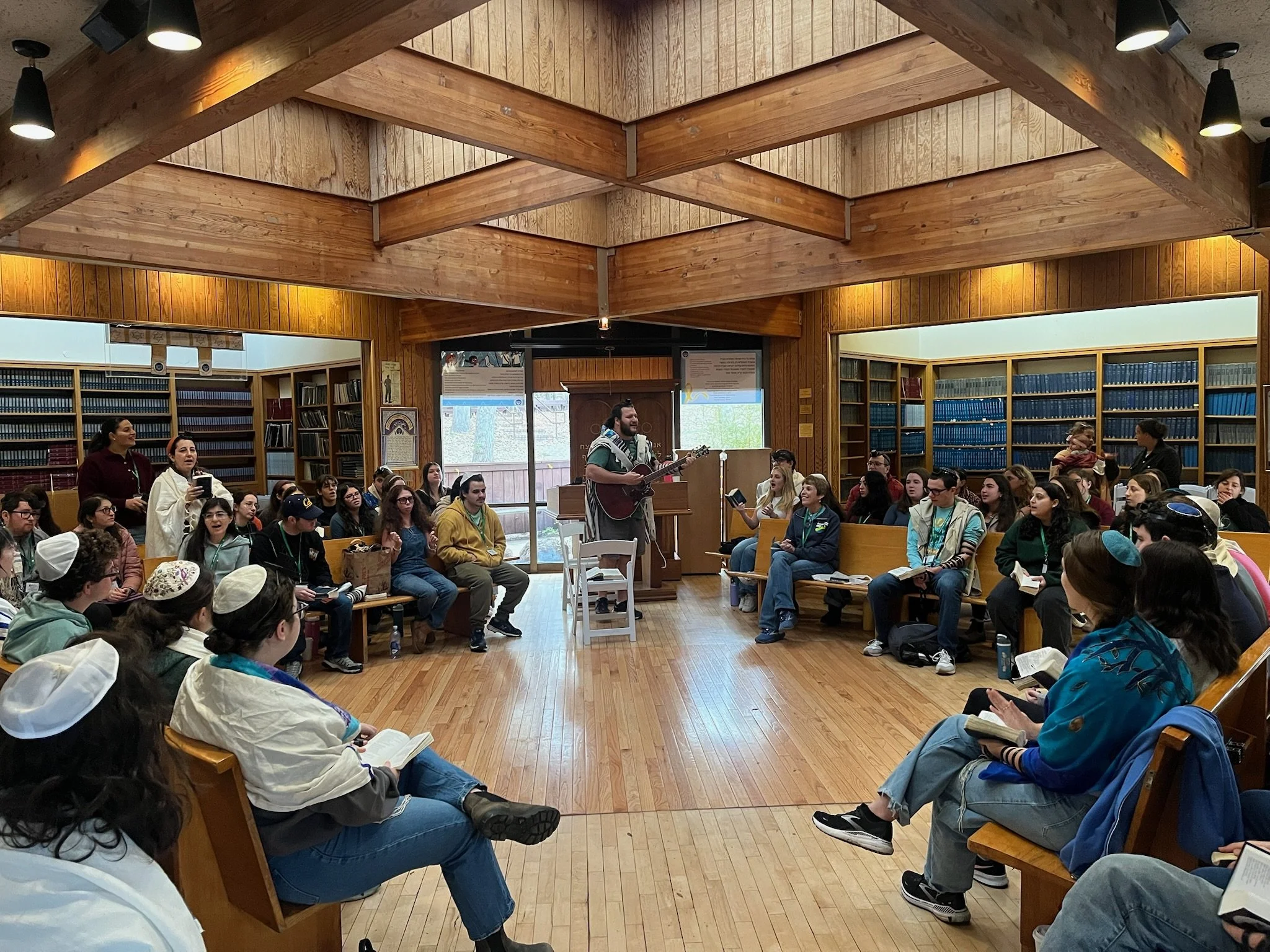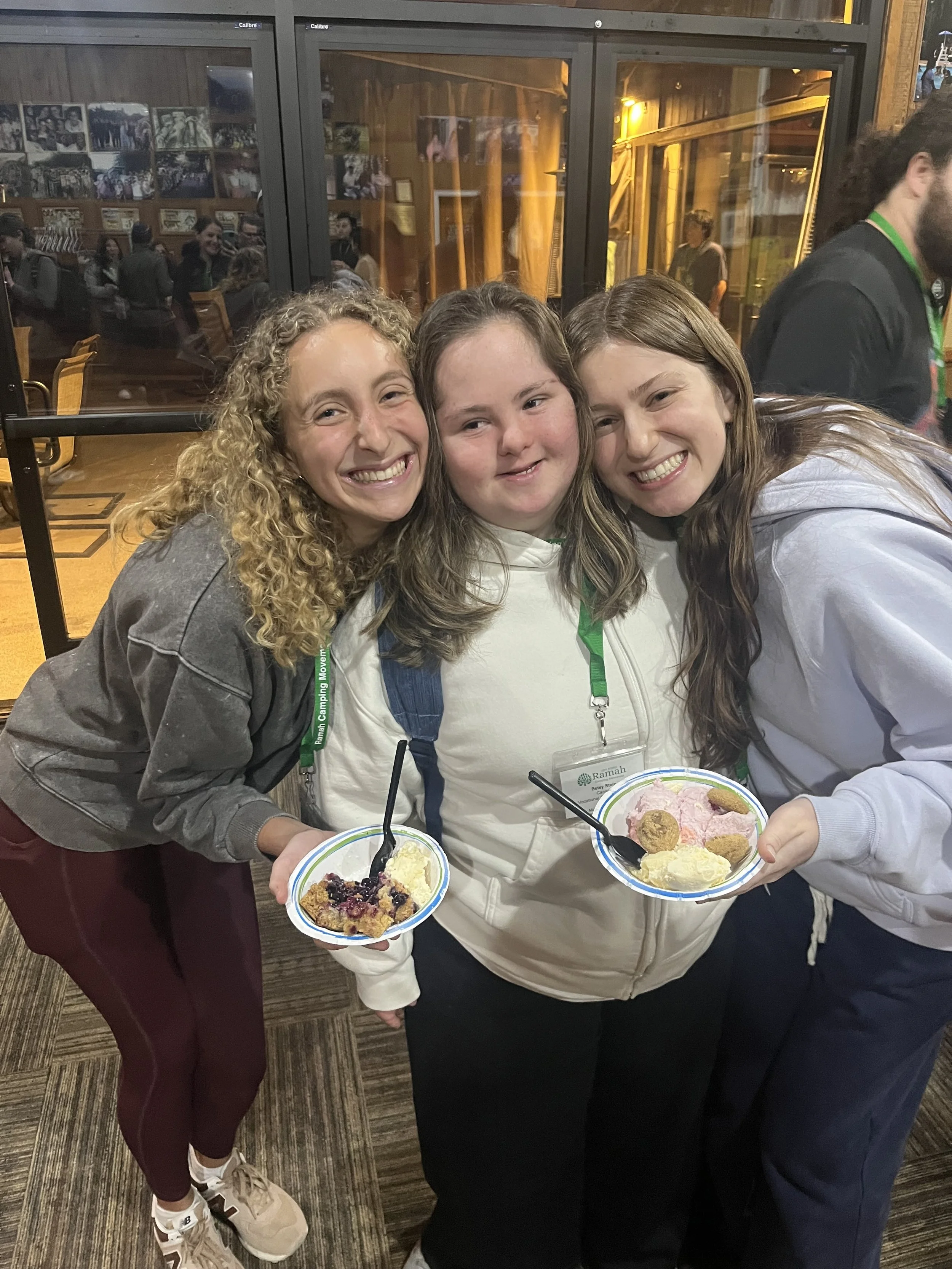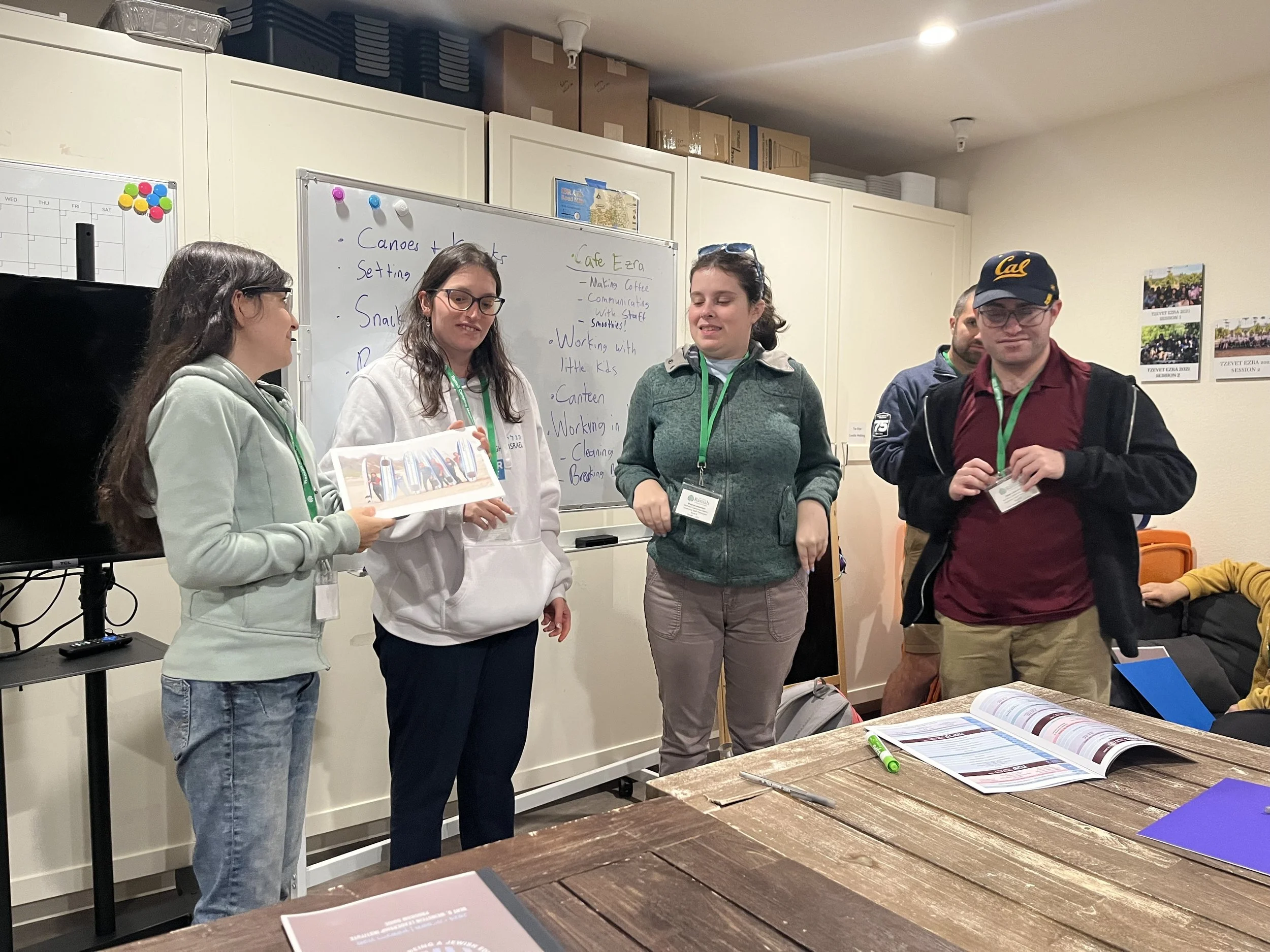Sacred Waves: Building Confidence in Experiential Jewish Education at Weinstein 2025
Our hearts are with the greater Los Angeles community as wildfires continue to burn. Please consider supporting the Los Angeles Jewish Federation’s Wildfire Crisis Relief fund.
At Ramah, we take pride in our strong record of creating outstanding experiential Jewish educational opportunities for our campers and staff members. At National Ramah’s annual Bert B. Weinstein Leadership Institute, which took place over this past weekend, January 2–6, we gave the over 100 Ramahniks in attendance creative ideas and new tools to help them feel even more confident as experiential educators. (View program booklet.)
We opened Weinstein at the close of Hanukkah. Our hosts at Camp Ramah in California prepared latkes and sufganiyot for us as a welcome snack in the waning moments of the holiday. We sang “Al HaNissim” during the Mincha Amidah and thought about how to keep our light shining, even as the holiday ended.
We hosted an audio-immersive experience on Thursday evening, showing off the vast educational potential of using wireless headphones for programming. From dancing, to playing games, to pausing for spiritual connection, participants saw how they could transform a classic activity like a dance party into a rich and powerful experience.
Audio-immersive peulah with Daneil Olson, National Ramah
Shayna Podhoretz, a returning senior counselor at Ramah Wisconsin, shared about this experience,
“Everybody danced together in one space, even if we were listening to different channels, but would all return to the same one to reconnect with one another. In some ways the Ramah movement is a silent disco. Each camp is on a different channel, but we all come back to the same one again and again. And without the headphones, it’s difficult to understand just how special it is.”
Over and over again throughout the weekend, we emphasized music as a critical component of experiential Jewish education. Michael Harlow, a master educator, songleader, and Ramah Rockies veteran staff member, joined as musician in residence, leading us in prayer and teaching us how to incorporate music into everyday programming for campers. Rabbi Annie Lewis, Director of Recruitment and Admissions for Religious and Educational Leadership at The Jewish Theological Seminary, taught a wonderful session on incorporating song and blessing into our work as camp staff. Dr. Daniel Olson, NRC’s Assistant National Director, led an alternative Shacharit on Shabbat morning on the connection between musical theater “I Want” songs and traditional Jewish prayer.
Shacharit with Michael Harlow, Musician in Residence, Ramah Rockies
“Making Your Average Camper Feel 10 Feet Tall” with Michelle Sugarman, Ramah New England
We challenged participants to begin developing an immersive activity for campers inspired by a short text from the Babylonian Talmud (Sanhedrin 17b—it happened to be Friday’s Daf Yomi) about ten things a city must have for a Torah scholar to be able to live there. We emphasized the importance of building in time for reflection when designing such activities. The participants really impressed us with their creativity and we hope to see some of their ideas in action this summer!
During Shabbat, we offered sessions focused on camper and staff care, the business of camp, best practices in inclusion, and a variety of Jewish learning options.
At the end of the weekend, participants reflected:
“Attending Weinstein gave me more ideas to both share and establish Jewish experiential opportunities for my campers this summer. I learned so much about being an impactful Jewish educator and I am grateful for the time I got to spend with my camp’s leadership to build up larger ideas for the upcoming summer”
“I felt as though my Judaism was restored. After a long semester away from what I felt was Jewish connection, I feel now as though I am in a much better spot to be able to connect to my campers in a Jewish context”
“I feel more connected to my own camp community and I have more understanding of my strengths as a counselor. I feel more confident in being a senior counselor and mentor to junior counselors this coming summer.”
In addition to excellent experiential Jewish education, we also take great pride in our Tikvah programs and inclusion efforts. This year’s Weinstein welcomed a record 10 participants to our vocational training track, led by Maya Albin, and 8 participants to our Tikvah counselor track, led by Chicagoland Day Camp Assistant Director Dina Greenberg. The vocational training track offered workshops in independent living skills and self-advocacy. The Tikvah counselor track certified all participants in Safety Care, a specialized training designed to help de-escalate potentially challenging behaviors.
We invited veteran staff to stay in California for an extra day of experiential learning together. The twenty-three participants who chose to stay learned from the Ojai fire department about fire-fighting efforts in southern California, most especially during the 2017 Thomas Fire that threatened Camp Ramah in California. These lessons became painfully real as we watched massive wildfires spread in Los Angeles in the immediate days following Weinstein.
Educator extraordinaire Marci Greenberg of Ramah Galim led us in a number of activities related to sustainability efforts at our camps, encouraging all of us to think about what we can do to make our camps cleaner and greener. She emphasized that all of our camps, even if they are thousands of miles inland, ultimately connect to the world ocean. Our actions, and the actions we model for campers, matter for the planet’s current and future health.
Marci led us in “Tefillot Afloat” for Shacharit on the beach in Santa Barbara. For the Amidah, we took three steps back, and then three steps forward before running into the cold ocean for a boogie boarding session. When we got out of the water, we lay down on our boogie boards, listened to the beat of our hearts, and recited the Shema, really feeling the oneness of the Divine and of the entire earth.
“Tefillot Afloat” with Marci Greenberg, Ramah Galim
The participants left this extra day inspired to bring sustainable practices and nature-based tefillot experiences back with them to camp.
A couple participants reflected:
“I want to help push my campers to appreciate the views we have at camp, to be able to sit and appreciate how amazing the tiniest details of this earth are, and [to feel] how wonderful our God is. [I want to] encourage them to pick up their trash so there isn’t as much of it littering the camp grounds. The day also inspired me to be more creative. There are a lot of other ways we can run programs to switch things up and spice them up.”
“I felt greatly inspired by Marci’s presence and leadership throughout the extra day. I can say with confidence that the extra day, learning about and beginning working to heal our camp environments paired with a truly unique tefillot, was among the most meaningful days I have ever had at Camp Ramah.”








